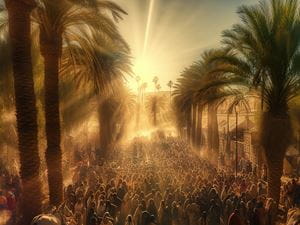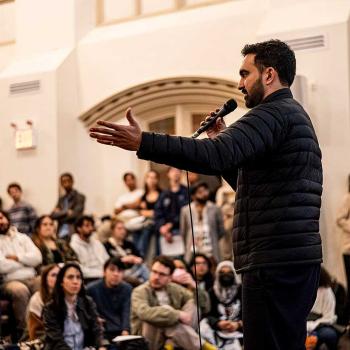
Traditionally dated to somewhere in the 8th century BCE, the Book of Hosea is a book filled with warnings to God’s people; warnings given because of their consistent “unfaithfulness” to their deity and His revealed Law.
In the fourth chapter of the book of Hosea, Yahweh declares, “My people perish for lack of knowledge” (V:6). The Hebrew word translated as “perish” implies that they will be “destroyed,” “cut off,” or “cease” to exist. In other words, “the Lord” (or Jehovah) commands His people through His prophet to “hear” His “words” (V:1). And then He describes what He sees as their unfaithful and unrighteous state
Israel’s God speaks of His “people” (or “nation”)—the “children of Israel” (V:1)—as void of “truth” or the “knowledge of God.” He says that they are guilty of dishonesty, immorality, and violence (V:2) and, as a result, they will be given reason to “mourn” and be “weakened” as God takes from the “the beasts of the filed, the fowls of the air, and the fish of the sea” (V:3).
Having described (through the prophet, Hosea) His discontent with His “people,” Yahweh then informs them that they are like people who “contend” or “argue” with God’s priests and, consequently, they will “fall” (or be “destroyed” Heb.) as will their “spokesman” or “false prophet” (V:5). Indeed, He says “I will destroy thy mother”—a metaphor for the “nation of Israel” or the “people of God” living in the 8th century BCE.
All of this explains the context of what Hosea meant when he declared (on behalf of Yahweh) that “My people are destroyed because they have no knowledge” (ERV) or “my people are destroyed by refusing to obey” (as the Contemporary English Version renders the Hebrew).
Essentially, Israel’s prophet in warning the people that they have put themselves in a precarious situation. They have a God who is aware of them, and a prophet who receives His word (or commandments) for them, and yet they ignore what He gives, choosing to “argue” with the priests and follow the “false prophets” who tell them what they want to hear and who lead them down a path that ends in destruction.
The “knowledge” that Hosea says the people of God are lacking—the “knowledge” that leads to their “destruction”—is the “knowledge of God.” It isn’t that they don’t know about Him or aren’t aware of what He has taught.
Rather, they have His law and His inspired messenger (in the form of Hosea), but they reject it. They don’t want it. As the Darby Translation of this passage explains: “My people are destroyed for lack of knowledge; for thou hast rejected knowledge, and I will reject thee, that thou shalt be no priest to me; seeing thou hast forgotten the law of thy God, I also will forget thy children.”
In the Hebrew Bible, the “children of Israel” were “chosen” to be God’s people, the bearers of His covenant, the recipients of His blessings, and the one’s “authorized” to function in His tabernacle and temple.
However, because these ancient “chosen” people loved the “world” more than God, and they desired the “law” of a flexible “false prophet” more than the law of the Divine, their God would reject them as His “people.”
Here Yahweh informs them that He will take from them their status as His “nation” and remove from them the privilege of having “priests.” Because of their unfaithfulness, they will be—in God’s eyes—like the heathen nations who reject Him and, thereby, lose the blessings He has for those who believe and are faithful to God.
Applying this verse to the believers in his day, Theodore, Bishop of Mopsuestia (AD 350-428), summarized God’s message in this way: “My people are like a priest who is compromised. He has fallen from his previous dignity and does not appear worthy for any reason [or in any way], just as a priest who falls into controversy would be set aside and dishonored by everyone… To the greatest extent he will become weak because of the upcoming evils” in which he will engage. (Theodore, Commentary on Hosea 4.)
Thus, in Hosea’s day and Theodore’s—and presumably in our own era—God says that, if the “kingdom of priests, and [His] holy nation” (Exodus 19:6) choose to become “compromised” through sin and rejection of God’s commandments, then they will “destroy” themselves much like a little child that ignores his mother’s warnings to not run into the street.
Theodore, like Hosea, is saying that those who once had God’s ear and aid may lose both if they reject their God for a more worldly life, a “false prophet” who preaches an “easier way,” or a life without “laws.”
And, true to Hosea’s warning, that is exactly what happened. In circa 732 BCE, the Assyrians took God’s people captive, followed by the Babylonians (in circa 586 BCE), then the Persians (circa 539 BCE), and eventually the Romans (AD 70).
Thus, the warnings of Hosea went unheeded, and God’s people “perished for” their lack of obedience to the “knowledge” God had revealed to him.
9/17/2024 8:46:56 PM










